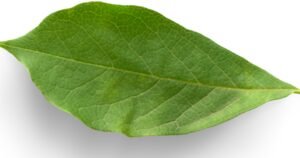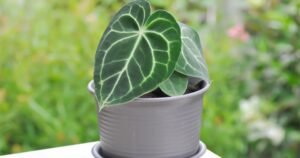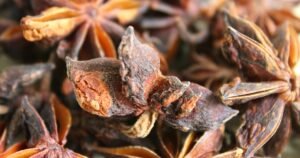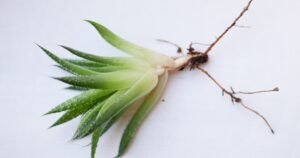Are you worried about I Accidentally Sprayed My Plants With Vinegar? Vinegar, while a common household item, can inadvertently cause harm to plants due to its acidity.
If you accidentally spray vinegar on the plants or their roots, rinse them off with plenty of water as soon as possible to minimize damage.
When sprayed on plants, the acetic acid in vinegar can penetrate plant cells, causing dehydration and potentially even killing the plant.
If you’ve accidentally sprayed your plants with vinegar, the first step is to act swiftly to limit damage.
Thoroughly wash the impacted plants with water to dilute the vinegar.
Monitor your plants closely for signs of distress, such as wilting or browning leaves in the following days.
Depending on the severity of exposure, some plants may recover with time and proper care.
Introduction
Accidents can happen daily, and one such incident might involve unintentionally spraying plants with vinegar.
Vinegar is a common household item used for culinary purposes or as a natural cleaning agent.
However, it can have varying effects when it comes into contact with plants, depending on several factors.
In this article, we will explore the impact of accidentally spraying plants with vinegar, the potential damages it may cause, and possible ways to mitigate the harm.

Understanding Vinegar and Its Composition
Vinegar is a liquid consisting of about 5–20% acetic acid, water, and trace chemicals that may include flavorings.
It is made by fermenting ethanol or sugars with acetic acid bacteria.
The acetic acid component of vinegar makes it a potent substance.
With a pH of 2.4 to 3.4, vinegar is highly acidic, making it an excellent natural weed killer.
However, the same properties that make it harmful to weeds also threaten your plants.
Its acidity can damage or kill plants by altering their pH level, draining moisture from their leaves, and disrupting their nutrient intake.
The extent of the damage depends on the plant’s resilience, the concentration of the vinegar, and how much was sprayed.
What is Vinegar?
Vinegar is a liquid typically made through the fermentation of ethanol by acetic acid bacteria.
It is a versatile substance used in cooking, cleaning, and gardening.
Composition of Vinegar
The main component of vinegar is acetic acid, usually making up around 4-7% of the solution.
Other components may include water and trace amounts of other organic compounds.

Impact of Vinegar on Plants
When vinegar comes into contact with plants, the acetic acid quickly breaks down the protective coating of plant leaves, leading to moisture loss and, eventually, wilting.
In essence, the plant dehydrates.
With prolonged or concentrated exposure, vinegar can ultimately disrupt the plant’s photosynthesis process, causing the plant to weaken and die.
However, the impacts are only uniform for some plants.
Some hardy plant species may survive mild vinegar exposure, while others, significantly younger or more delicate plants, may struggle to recover.
It’s vital to note that while vinegar, especially in higher concentrations, is an effective herbicide for killing unwanted weeds, its non-selective nature means it can just as quickly harm your desirable plants.
Direct Contact with Vinegar
When plants come into direct contact with vinegar through accidental spraying or other means, it can lead to short-term and long-term effects.
- Leaf Damage: Vinegar is acidic due to its acetic acid content, and when it comes into contact with plant leaves, it can cause immediate damage. This damage may manifest as the affected leaves’ wilting, browning, or yellowing.
- Disruption of pH Levels: Vinegar’s acidity can alter the pH levels of the soil if it drips down from the leaves. Plants often require specific pH levels in the soil for optimal growth, and abrupt changes can negatively affect their ability to absorb essential nutrients.
- Root Damage: If vinegar seeps into the soil, it can potentially reach the plant’s roots, causing harm and hindering nutrient absorption.
- Impact on Microorganisms: Vinegar may also affect the beneficial microorganisms in the soil, disrupting the soil’s overall health and balance.
Severity Depends on Concentration and Frequency
The severity of the impact largely depends on the concentration of vinegar, the duration of exposure, and the frequency of the exposure.
Higher concentrations and repeated exposures are likely to cause more pronounced harm to the plants.

Mitigation and Remedial Measures
Taking Immediate Action
First and foremost, if you accidentally spray your plants with vinegar, it’s crucial to act immediately.
The faster you respond to the situation, the better the chances of mitigating the damage.
Rinse the plants as thoroughly as possible with water.
Doing so helps to dilute the vinegar, reducing its harmful effects.
Also, wash the surrounding soil to eliminate vinegar that might have seeped in.
Restoring Soil pH Levels
After rinsing the plants, the next step is to restore the soil’s pH level.
If vinegar significantly affects the soil’s pH, apply lime or calcium carbonate to neutralize the acidity.
However, it’s best to test the soil’s pH before adding amendments.
Providing Extra Care
In the days following the vinegar spraying, keep a close eye on your plants.
They may require extra water, nutrients, or shade from direct sunlight to recover.
If a plant shows signs of severe distress, such as significant leaf drop or wilting, it may be necessary to prune the affected parts to prevent the damage from spreading.
Consultation with a Professional
In cases where you’re unsure of how to proceed or if the plant doesn’t show signs of recovery, consider consulting with a horticultural expert or local extension service.
They can provide guidance based on the specific plant type and the damage’s extent.
Remember, prevention is always better than cure.
Therefore, always take care when using vinegar or other household substances around your plants to avoid any accidental harm.
Immediate Action After Accidental Exposure
- Rinse Thoroughly: If you accidentally spray vinegar on your plants, immediately rinse the affected parts with water.
This will dilute the vinegar and help minimize its impact.
- Water the Soil: To dilute any vinegar that may have reached the soil, generously water the plant.
This will help reduce the acetic acid concentration in the root zone.
Monitoring and Care
- Regular Inspection: Keep a close eye on the affected plants. Monitor for signs of distress or damage, such as wilting, discoloration, or stunted growth.
- Adjusting Watering and Soil pH: If you notice signs of pH imbalance or root damage, adjust the watering routine and consider amending the soil to restore the appropriate pH levels for the specific plant species.
- Provide Adequate Nutrients: Consider providing balanced fertilization to help the plants recover and regain their vitality. Proper nutrition can aid in the healing process.
Future Preventive Measures
- Exercise Caution During Application: Be cautious while using household items like vinegar near plants. Use them controlled, ensuring they do not accidentally come into contact with plants.
- Use Plant-Safe Sprays: If you need to spray substances near your plants, use sprays designed explicitly for plants or natural remedies known to be safe for vegetation.
Conclusion
I Accidentally Sprayed My Plants With Vinegar. Accidentally spraying plants with vinegar can have various detrimental effects, but prompt and appropriate action can mitigate potential damage. Understanding the composition of vinegar and its impact on plants is essential in handling such accidents effectively. Dilution, rinsing, monitoring, and providing necessary care are vital steps to aid in the recovery of plants after accidental exposure to vinegar. Additionally, taking preventive measures in the future will help ensure the well-being of your plants while using household items in your vicinity.
FAQs
Will vinegar kill plants if sprayed?
Yes, spraying vinegar directly on plants can potentially kill them. Vinegar is acetic acid, which can cause significant damage to plants if applied directly.
It disrupts the pH balance of the soil, damages the plant’s leaves and roots, and can inhibit the plant’s ability to absorb nutrients.
However, the damage’s extent depends on the vinegar concentration and application frequency.
What happens if vinegar gets on plants?
When vinegar gets on plants, it can cause harm by damaging the foliage, disrupting the pH balance of the soil, and potentially reaching the roots.
Vinegar’s high acidity can break down the plant cell’s structure, leading to wilting, browning, and, in severe cases, death of the plant. Immediate intervention can help mitigate the damage and aid in the plant’s recovery.
How long does vinegar stay in the soil?
The lingering effects of vinegar in soil can vary based on factors such as soil composition, rainfall, and the initial concentration of vinegar.
Typically, vinegar will stay in the soil for a few days to weeks.
Natural elements like rainfall and soil microorganisms help to dilute and break down the vinegar, restoring the soil’s pH balance over time.
How much vinegar and water do you use to spray plants?
The dilution ratio of vinegar to water depends on the desired effect.
Generally, a 1:10 ratio of vinegar to water is used for a mild solution.
This solution can be used as a natural insecticide or mildew treatment.
However, for more substantial applications that require more acidity, such as weed killing, a 1:1 ratio may be used.
Always exercise caution when spraying near desirable plants.











